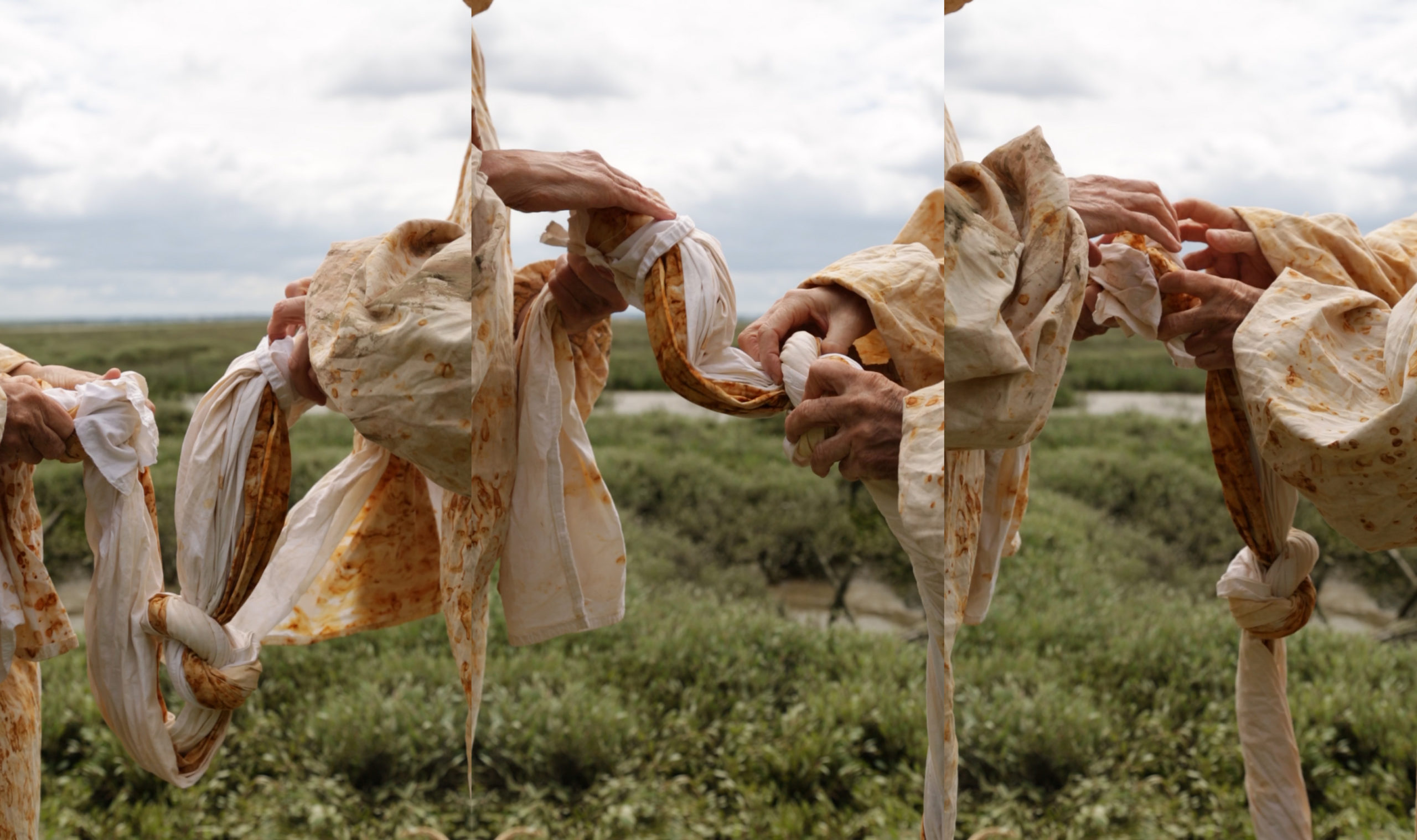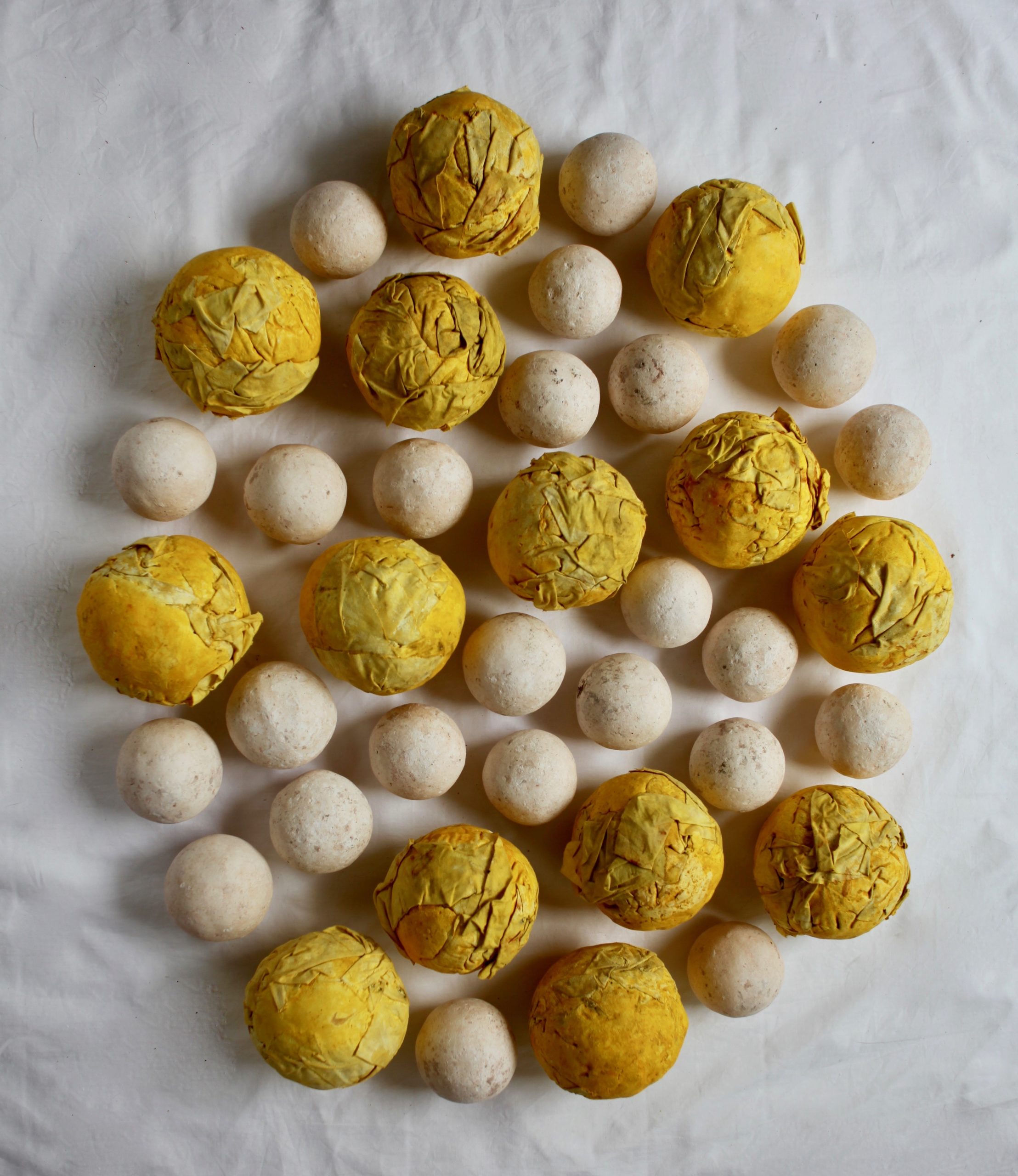Judith Weik, Coordinator of Art at the Alison Richard Building, speaks to artists and conference convenors Beverley Carruthers and Jane Woollatt about the forthcoming conference Reinventing, Rethinking, and Representing Menopause: Beyond the Interdisciplinary Paradigm, which is taking place on Saturday 29 September 2018. Alongside the conference, there will be an online exhibition on the theme of Rethinking the Menopause.

Image: Knotting © Beverley Carruthers
Q. Jane and Beverley, what is your conference about?
Beverley: After over 30 years of being friends and making artwork Jane and I decided to work collaboratively on the subject of menopause. In part, because we had both moved into this phase of our lives but also in recognition that few artists were making work in this area and we wanted the artists’ voice to be heard within the growing critical debates on this subject across a number of fields. We look to the conference to bring these interdisciplinary voices together. Artists often talk to other artists and that is true of every discipline, our conference is a way of crossing boundaries and learning from each other to broaden the debate and allow for cross-disciplinary collaborations.
Jane: About two years ago Beverley and I went to an exhibition at the Serpentine Gallery London. On show was a collection of works generated by two women. Their work was playful and seemed to offer commentary on being a woman however it was clear they were younger than us. Beverley and I met at art school over 30 years ago. Walking around the exhibition we decided to work together on a project. In part because of our age and our shared interest in art and women we decided to use menopause as the motivation for our project.
When we started to research menopause we looked for other works. We soon discovered that there is very little out there to refer to. We also discovered that most of the information and imagery that we could find was superficial, negative and problem/disease-focused. This generated two question why are there so few images and what can we do to challenge this? This conference is our contribution to the emerging dialogue where women and men are starting to feel more confident to share and talk about their experience of menopause, an attempt to broaden and enrich the conversation.
Q. How did you conceive the theme for the conference?
Beverley: Jane and I initially made a short film, in a spontaneous fashion exploring our personal perspectives on menopause, our long-term friendship and our relationship with a geographical space. This film gave us the opportunity to engage with the wider menopause research community, through which I met Mwenza Blell. Meeting Mwenza sparked the idea of the conference. Mwenza had contacts within the social science community and Jane and I drew on our contacts within the art community so we were able to organise the conference bringing these areas together.
Jane: The themes emerged as we researched menopause in readiness for the conference. It feels like a serendipitous moment where an idea, a venue and a group of experienced and willing and engaged people came together. Menopause is a hot topic, there is a thirst for information and a need for the emerging network to come together to share and spread the word. Talking about menopause: a tabooed subject starts the process of challenging what feels like the prohibition on ageing and women. We can start to reshape perceptions of the value and place of women in society beyond fertility.
Q. How did each of you as artists interpret and make work for the accompanying exhibition?
Jane: I like to work with domestic materials, sheets, blankets and nails and use marking making techniques familiar to women, stains and threads. I discovered while researching menopause that it is our ovaries that are at the centre of the pivotal event: when menstruation ceases and eventually stops due to the decline of the powerful hormone Oestrogen. Menopause is an event without a ceremony and one shrouded in taboo. I started to make a series of pieces that play with theme generated in response to my thinking about ovaries and endings.
Beverley: Throughout my art practice I have been interested in the relationship between storytelling and the female experience as a way to explore imagined possible futures. Looking for depictions of older women in mythology uncovered the Baubo figurines. Baubo is the Greek Goddess of humour who cured Demeter of her depression. I decided to work with the image of Baubo exposing herself for this work.
The transitional phase of menopause in a woman’s life has no ritual and remains overlooked in our contemporary world, where the image of the older woman is drowned out by the flood of images on how to remain young. The ritualistic performances are a way of exploring menopause and celebrating menopausal woman.
Q. Apart from those affected by the menopause, who would this conference and exhibition be of interest to?
Jane: I hope my work will speak to anyone interested in and wanting to find out more about menopause. Men also have a menopause but the consequences are different. Menopause has a more significant and socially profound impact on women. I would like to think anything that enhances and enriches the conversation about menopause is interesting.
Beverley: As menopause affects most of us either directly or indirectly it is a conference and exhibition which would be of interest to anyone who would like to be part of the debate and discussions and add their voice. Artists responding to the Open Call for the exhibition will have their work on show during the conference and Jane and I look forward to seeing the work submitted.
Q. Is there a book or catalogue to go with the conference and exhibition, and where is it available?
We hope to produce a publication which will be a record of the conference and the exhibition, it will be available via CRASSH.

Image: © Jane Woollatt

